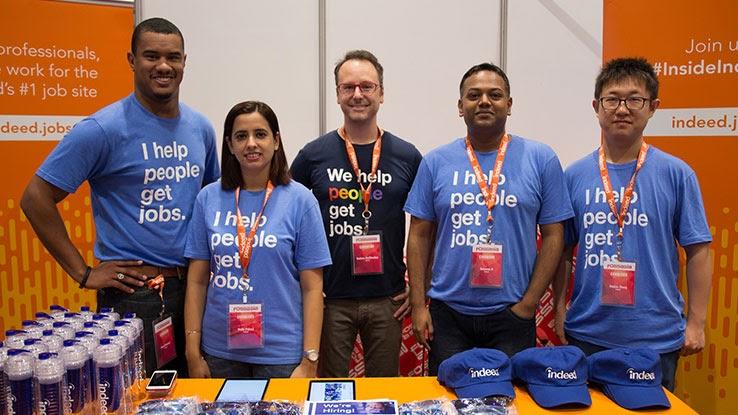False Assumptions and Hard Truths About Finding a Job

Searching for a job is exhausting and stressful. It takes a lot of effort to obtain a position that is right for you. Not only are you looking for the proper role, but you also need to be aware of the company’s culture, salary and benefits.
You will receive a lot of advice from people about job hunting. Some of it might be valuable. Just ensure your resume is perfect and don’t believe these myths.
Myth: Include as Much Information as Possible on Your Resume
One common mistake is mentioning every detail about your previous jobs. Some people insist on letting employers know everything they’ve done throughout their careers no matter how tangentially related it is to the position at hand, from changing coffee filters to entering data.

The result is a lengthy document that reads more like an autobiography than a resume. Some people find it satisfying to detail their accomplishments in a 10-page curriculum vitae, but most employers don’t. If an experience isn’t relevant to the job at hand, cut it. A resume should only be a few pages long at most.
Truth: Emphasize the Most Important Experience on the First Page
In reality, a resume should only include the highlights. Many employers receive hundreds of resumes per day, so they don’t have the time to review each resume from start-to-finish. Some recruiters may even take the first page of a resume and toss out the rest, making all of that hard work pointless.

Keep the information most related to the job you are applying for on the first page to impress the reader from the get-go. Employers will read the rest of the document if they like what they see.
Myth: No One Reads Cover Letters
In today’s competitive job-seeking world, who has time to read an entire cover letter? It’s foolish to think that someone is going to sit down and read a complete cover letter from every candidate, right?

While some companies might skip reading cover letters, especially if they didn’t ask for them, others genuinely use them in their hiring process. It’s a mistake to assume a cover letter can’t generate interest in you as a potential employee.
Truth: Your Cover Letter Is the Attention Grabber
Including a cover letter is a vital step to ensuring your resume makes it to the interview stage. It is your chance to capture the hiring manager’s attention and create a narrative about your employment history, potentially even before they see your resume.

Although not everyone is going to read your cover letter, you still want to include it with your application. Cover letters can also be written in the body of an email to the hiring manager with the resume attached.
Myth: Use the Same Cover Letter for Multiple Job Applications
A cover letter should be short and to the point, and it should consist of highlights that make you the perfect person for the job. Since it contains your career highlights, it shouldn’t change, right?

Many people think that their accomplishments will capture the attention of all recruiters, no matter the job, but that’s not always the case. Your cover letter is an opportunity to tout the most relevant experiences for a particular position and frame them in a way that is favorable to employers. Using the same cover letter for every job squanders that opportunity.
Truth: Use Your Cover Letter to Show You Understand the Job
Recruiters and hiring managers can see right through a generic cover letter and recognize that it was copied and pasted from a previous application. By reviewing the job description in detail and using it as a starting point for a targeted cover letter, you demonstrate that you’re invested in that particular position, not just any job at all.

Show the company that you understand what they are looking for in a candidate. Explain how you meet each job requirement and use a few bullet points if you have to. Remember, this isn’t a biography of your educational and career history. Show them why you’re the perfect candidate
Myth: Use the Same Resume for Each Application
Now that you’ve written your resume, it’s time to start submitting it to every job you can find. It can certainly save time to send out the same resume to every employer you apply to, but is that the best strategy for landing a job?
Resumes are living, breathing documents. There is no such thing as a final resume draft, so customize your resume for every job you aim for. Show employers you think they’re special, and maybe they’ll return the favor.
Truth: Take Advantage of Keywords in Your Cover Letter
Submitting the same resume for every role can work against you in more ways than you think. Many large companies use an applicant tracking system (ATS) to search through hundreds, even thousands of resumes. The algorithm is keyword-based, so if your resume doesn’t include the right words and phrases for a specific job, you might miss out.

Before you submit each resume, review the job description in detail. Match your skills, qualifications and experience with the keywords in the job description. The more your content matches the job requirements, the better chance you have of making it through the ATS software. Submitting the same resume everywhere decreases your chances of success.
Myth: List Every Job You’ve Ever Held
It can be tempting to list every job application you’ve ever had. You want to show an employer the full range of skills and abilities you have to offer, and you definitely don’t want holes in your resume.

To be fair, it makes sense to have a resume draft that includes all of your experiences down for later customization. However, most jobs do not want to read about your role as a McDonald’s team member when you were in high school. Cut your full resume draft down to the most relevant experiences for a particular job, and be as specific as possible — the roles you list should relate to the posted position.
Truth: Focus on Recent and Relevant Experience
The content of your resume should follow a few simple rules. First, include your most recent five to 10 years of work experience. Use discretion when adding older roles; they should only be related to the industry for which you are applying. Second, separate each job by company, not by job title. Use your promotions as bullet-pointed achievements.

Next, do not include months. Omitting them can reduce questions regarding any breaks in your employment. If employers care about specific months, they can ask about them. Lastly, when in doubt, be brief.
Myth: Daily Tasks Are Essential in Your Career History
A significant portion of resumes focuses on day-to-day responsibilities. And why wouldn’t they? Those daily tasks are what made up a considerable amount of your time. It gives the recruiter or hiring manager a chance to see that you can fulfill the job duties required in the role.

The problem is that anyone can add daily tasks to a resume. It can be worth it to include a few brief bullet points to give an employer some idea of what your job entailed, especially if the responsibilities of the position aren’t obvious, but there are better uses for a resume.
Truth: Emphasize Actions and Accomplishments
Action words are crucial to summarizing a previous job on your resume. If used correctly, they paint a clear picture of what you accomplished and how you grew. ATS software can distinguish between overused action words and ones that a particular position calls for, so be specific, and be sure to list quantifiable achievements that demonstrate what you can do for an employer.

Prospective employers read about people who do data entry and make phone calls all the time. They’re looking for people who have gone above and beyond to increase efficiency. Recruiters and hiring managers want to see specific sales figures, awards, and rankings.
Myth: Sign Up for All Job Search Sites
Searching for a job is a numbers game. The more job sites you sign up for, such as Monster and Indeed, the better your chances of landing an interview. Theoretically, that makes a bit of sense. However, it’s a little more complicated than that.

First of all, most recruiters utilize multiple job search sites when building a team. There’s a good chance you’re just wasting your time signing up for as many as you can. Secondly, signing up for every job site available is more likely to just inundate you with emails for low-quality jobs. For quality job offers, you’ll have to get a little strategic.
Truth: Apply Directly at the Source
To master your digital job search, only sign up for quality websites, such as Ladders.com. All of the jobs listed pay upwards of $100,000. You can use Monster or Indeed, but be ready to filter through a lot of nonsense work.

The most effective way to apply for a job is directly through the company itself. You’re guaranteed to read an updated job posting that is still active. You can also email the manager or appropriate party directly.
Myth: All Open Jobs Are Listed
Now that you have found a company’s employment opportunities, you apply for as many as you can, even if you believe you are under-qualified. What have you got to lose? But you’re not done with this company quite yet. A major myth about job hunting is believing every available job is listed. Misunderstand details like these to your detriment.

The fact is that many companies have available work that isn’t listed online yet. Consider calling companies to find out about additional jobs that aren’t posted. You never know what else might be out there.
Truth: Always Introduce Yourself for Unlisted Opportunities
Do your due diligence and seek out additional opportunities. Find a department where you will be a valuable addition. Send a cover letter as your email and attach a draft of your resume with significant accomplishments. They might be looking for someone but haven’t listed the posting yet, or they may even be interested in adding a new role.

Not many people do this, but the ones that do have a better chance of getting a job. Companies admire dedication and notice when you go the extra mile. The worst thing that could happen is your email gets deleted.
Myth: Apply for Jobs and Wait for a Response
Now that you’ve applied to some dream positions, it can be tempting to just sit back and be grateful that you didn’t have to walk around town dropping off printed resumes like your parents. All you had to do was prepare digital applications.

You can sit wait around for a response if you want, but you’re missing out on an opportunity to build further connections between yourself and an employer. By contacting the employer via email sometime after the original application, you show your investment in the position at hand.
Truth: The Art of the Follow-up Email
So how do you follow up with an employer without bothering them? First, don’t worry so much — follow-up emails are a common practice. Second, keep it brief and professional. Mention your application date and a little something about yourself, state and again why you would be a good fit. If you were interviewed, thank the person for their time.

Your name will stand now stand out in the application process because you’ve shown you care enough about this position. Employers look for people who want to work for them, and by following up, you show you’re exactly that.
Myth: Schedule an Interview ASAP!
Your efforts have paid off, and you’ve been called to schedule an interview. Your first instinct might be to schedule the meeting for the next available date. You’ve been out of work for a while, and the sooner you show up, the sooner you can get paid. However, that’s not always the best practice.

Understand that hiring is a long process. Because of this, it’s easy for employers to forget about applicants they interviewed earlier in the process. While taking an early slot may signal enthusiasm, taking a later spot guarantees they won’t forget you.
Truth: Schedule in the Morning on a Tuesday
So when is the perfect time to schedule an interview? Going too late in the interview process can make you the victim of decision fatigue, as employers have simply looked at too many people to care anymore. Ideally, you want to be interviewed in the first half of the middle of an employer’s interview bloc for the best results.

Time of day and week also matter. Tuesday interviews are great because employers aren’t yet chomping at the bit for the weekend, yet they’ve made it past the misery that is Monday. You also want to stay away from the hours just before or after lunch when hunger and lethargy might distract employers. 2 p.m. to 4 p.m. lets you showcase your talents without distraction.
Myth: Asking for a Lower Salary Increases Chances of a Job Offer
Salary negotiations are a crucial element of getting a job. Many companies list pay amounts or base salary figures on the job posting. A lot of times, there will be a salary range based on experience. Don’t make the mistake of requesting the lowest wage while thinking it puts you ahead.

Asking for the lowest amount only makes you look desperate. Even if the lowest tier is enough to get you by, don’t sell yourself short. By requesting an even modestly larger amount, you demonstrate that you recognize your own ability.
Truth: Be Willing to Negotiate
Few employers ever withdrew a name from consideration for a job because the applicant asked for the maximum salary. You know your own value, so ask for a salary that reflects that. If a company disagrees, you can trust them to present you with a lower counter-offer.

This is your only time to negotiate before you need to prove your merits. Your next raise could be years off, so take advantage of this opportunity. If there is a chance you could make six figures instead of five, take it.
Myth: You’ll Only Have One Career in Life
Industries evolve, and some die out. It’s naive to think in this day and age that you’ll be working in the same job your entire life. No matter how much experience you have, you may be subject to termination. The secret to success is to always be willing to learn new skills and expand into new areas of expertise

Losing a job can be frightening, but it doesn’t have to be the end of the world. Many people have multiple careers throughout their lives, and some even find more success after failing an earlier one.
Truth: Age Doesn’t Matter, Leadership Does
While ageism is real, you’re not necessarily out of luck just because you’re an older person. The Age Discrimination in Employment Act offers some protection against discrimination based on age, and ultimately, many companies just want to hire the most qualified candidates to improve their revenue. Profits are, in fact, their bottom line.
Being a little on the older side can even be an advantage. There’s no substitute for experience. Many leadership opportunities are aimed at experienced people who can serve as leaders and mentors to young staff members.
Myth: Accept the First Job Offer
Say you’ve just started applying for jobs when all of a sudden, the phone rings. It’s not from the company you were hoping to hear from, but it’s work. Should you take it?

Don’t feel pressured to accept the first job offer you receive. While financial necessity might require you to take a job you don’t want, if you have the cash to support yourself, it’s fine to pass on an offer if it doesn’t turn out to be what you hoped.
Truth: Don’t Hold Out for a Job a Dream Job
It can be tempting to hold out for a dream job, but that’s not always realistic. If you need money, a bad job now might be necessary to survive until you get a better one. If necessary, take advantage of the gig economy to pay the bills. Drive for Lyft or Uber or sign up on Wonolo for one-time jobs.

It’s also sometimes necessary to start in a less glamorous job to work your way up to a better position. No one gets to be the CEO of a company right out of college, so put in the time and show your employer that you have what it takes to rise to the top.
Myth: Always Trust Your Headhunter
Temp agencies and other kinds of so-called headhunters can be great in that they already know of companies that may be looking to hire someone. They probably have access to contacts in companies you could only dream of. However, that doesn’t mean they have your best interests at heart.

Headhunters get paid to fill jobs first and foremost. While making a good match between job and employee can indirectly benefit them by making companies satisfied by their services, they get paid no matter what as long as you take the job. If a headhunter is pushing a job that doesn’t work for you, don’t be afraid to say no.
Truth: Recruiters and Headhunters Have Different Goals
While headhunters usually act as third-party agents, recruiters are often part of the company whose positions they’re trying to fill, meaning that their primary interest is in finding employees that will excel at their tasks. While recruiters are also interested more in helping employers than employees, they get paid for bringing on quality staff, not just filling seats.

Keep in mind that a recruiter is also different from a hiring manager. The former’s primary job is finding new employees, while the latter person probably has other responsibilities. Recruiters are also more likely to be in contact with potential employees.
Myth: It’s a Bad Idea to Switch Careers
Let’s say you’ve been working as a computer programmer since the days of MS-DOS. You make decent money, but staring at the computer screen for 12 hours a day is giving you headaches. Maybe you long for a change of scenery and something new.

Many people will warn you against changing jobs. It’s a tight job market, they’ll tell you. You’ll have to start in an entry-level position and work your way up again, they might say. However, sometimes the advantages of joining a new career can outweigh the disadvantages of staying in an undesirable one — if you’re responsible about it.
Truth: Old Jobs Can Lead to New Ones
Entering the job market is a gamble. However, if you take the time to research other fields prepare yourself financially and acquire new knowledge if needed, it can make sense to switch fields. What matters is understanding your chances of success and the skills you’ll need to excel as well as having a plan in place so you don’t bankrupt yourself.

Be aware that you may have existing experience that can help you break into new fields. Our hypothetical computer engineer, for instance, can use his or her technology skills in many fields. As noted earlier, how you frame your past careers is often as important as what those careers actually were when it comes to finding success in the job market.





